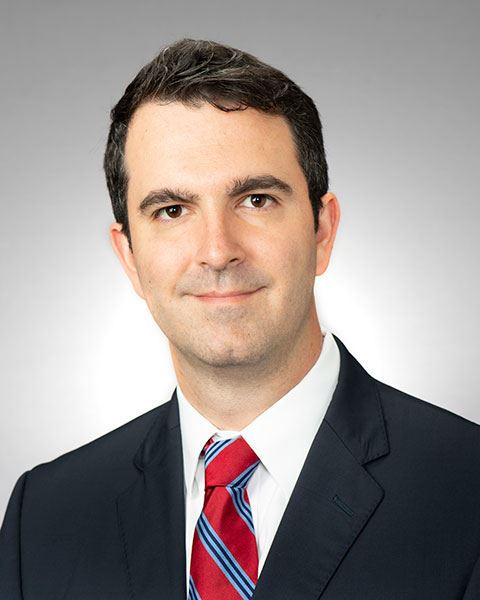“I can do whatever I feel like doing now,” Joseph says. “I got a fresh start.”

At the most miserable point in his ordeal, Joseph Cyrek’s pain was worse than he ever could have imagined. “Sometimes I’d lock myself in the bathroom and just scream,” the 67-year-old Manahawkin resident says. “I didn’t know what else to do.”

He was grappling with a neurologic condition called trigeminal neuralgia. “People have committed suicide over it,” says Stephen A. Johnson, MD, a neurosurgeon at Community Medical Center (CMC). “The pain is so intense, some can’t proceed with life.”
Joseph’s condition didn’t start that intense. “At first it felt like a little electric shock in my lower right jaw that went down the bottom middle of my mouth,” he says. “I didn’t know quite what it was.” He wondered about it for about two years, assuming it was a dental issue. His dentist thought a wisdom tooth didn’t come in right, and oral surgery in 2019 seemed to help.
But three or four weeks after oral surgery, things changed dramatically. “All of a sudden it woke me up one morning and I was in pain like I’d never experienced before,” Joseph says.
Crossed Signals
Trigeminal neuralgia occurs when a small blood vessel beats against the trigeminal nerve, which lies at the base of the brain and is responsible for sensation in the face. “Over time, signals become crossed between nerve fibers that carry light touch and fibers that carry excruciating pain,” Dr. Johnson says. “A light touch like a fingertip on your cheek tells the brain that someone is stabbing you in the face.”
Attacks were completely unpredictable. “It could happen when I was talking,” Joseph says, “or from the force of my foot on the ground or being out in the wind. And it happened every day.” He wasn’t suicidal, but life as he knew it stopped. “I was on my knees in pain much of the time,” he says. “I couldn’t go outside, I couldn’t do anything.”
When medication from a neurologist and a nerve block from a pain management specialist didn’t help, Joseph came to CMC. CyberKnife treatment that delivers fine, highdose radiation helped temporarily. “It hits the nerve’s reset button, but some people are better candidates for surgery,” Dr. Johnson says. “We offer either option, depending on what’s best for the patient.”
Surgery was best for Joseph. “Dr. Johnson showed me an MRI and said, ‘See that? I can fix that,’” Joseph says. In a procedure called microvascular decompression, Dr. Johnson separated the blood vessel and nerve, preserving both. “Eighty percent of patients have complete and instant relief right after surgery,” Dr. Johnson says. “There’s nothing better than seeing a patient who basically crawled into the hospital walk out with a huge smile.”
“I can do whatever I feel like doing now,” Joseph says. “I got a fresh start.”
To learn more about neurologic treatments at Community Medical Center, visit www.rwjbh.org/cmcneuro.